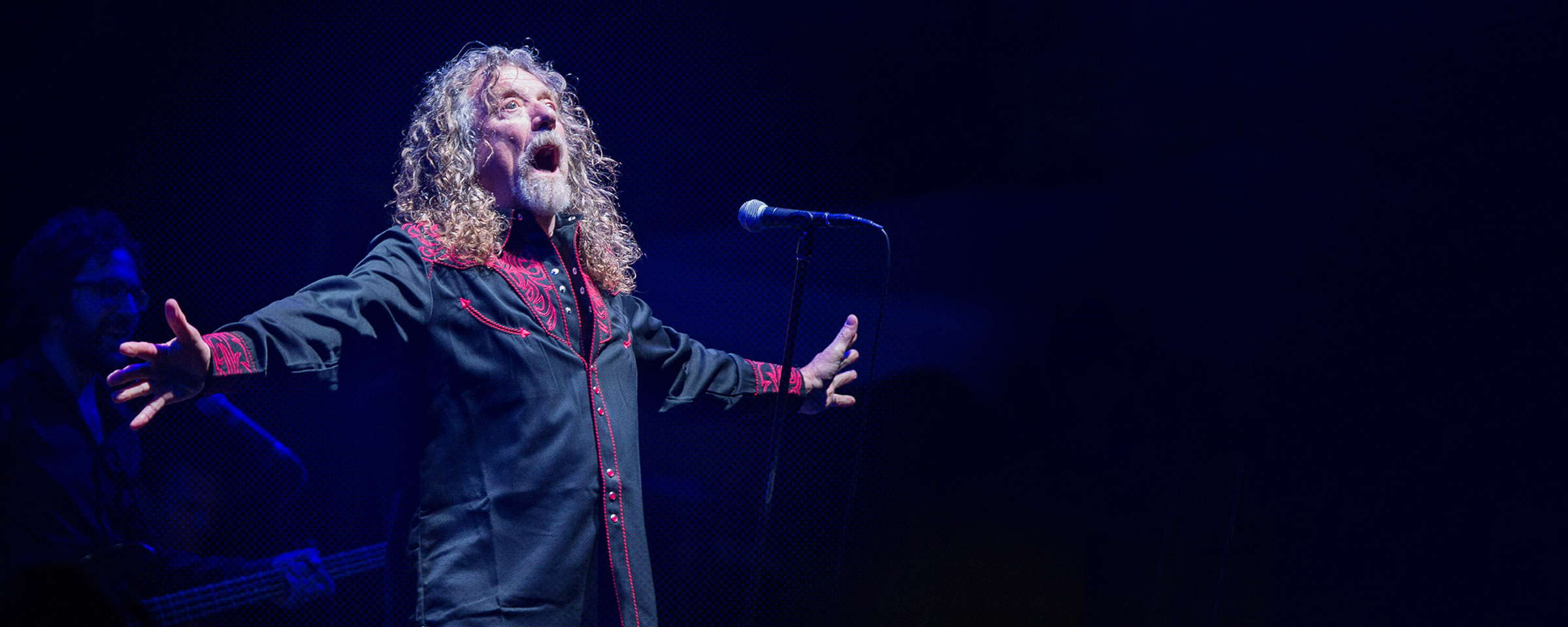The opening bars of Led Zeppelin’s “Stairway to Heaven” – some of the most iconic in rock ’n’ roll history – provided a soundtrack for Wahoos who graduated from the University of Virginia during the 1970s. Last week, fans around the world got a rare glimpse into the song’s origin story as rock royals Jimmy Page and Robert Plant testified about it in federal court.
The bandmates took the stand to defend themselves against a plagiarism charge leveled against them by the estate of Randy Wolfe. Wolfe, a guitarist and songwriter for the 1970s-era band Spirit, had long claimed that the opening to “Stairway to Heaven” was a rip-off of his song “Taurus,” written two years earlier.
“Taurus” is an acoustic piece, and the case centered on its similarities to the opening bars of “Stairway to Heaven.” Ultimately, the jury ruled in favor of Led Zeppelin, and Page and Plant were able to keep sole writing credit.
UVA Today sat down with Assistant Professor of Media Studies and American Studies Jack Hamilton to discuss the implications of this case for the music world and diehard Zeppelin fans. Hamilton’s research focuses on the evolution of popular music, and he’s the author of the forthcoming book, “Just Around Midnight: Rock and Roll and the Racial Imagination.”

Jack Hamilton is an assistant professor of media studies and American studies whose research focuses on the evolution of popular music.
Q. Can you give a little bit of background on the plagiarism allegation?
A. “Stairway to Heaven” itself is just a really interesting piece of music. It’s often cited as being the most played song in the history of rock radio. So there’s the sheer popularity. The other thing to keep in mind about the trial is that Led Zeppelin has a history of plagiarism controversies.
One of the best-known was a suit brought against them by Willie Dixon in 1985. He was a bass player for Chess Records, but he wrote a lot of songs, too. Zeppelin plagiarized a song called “You Need Love” that Willie Dixon had written for Muddy Waters in the early 1960s. The lyrics to Led Zeppelin’s “Whole Lotta Love” are the lyrics to “You Need Love,” and Led Zeppelin just took them. They settled with Willie Dixon, and encounters like that are a recurrent theme in the Led Zeppelin story.
So there was smoke there for the plaintiffs who were going after them in this case.
Q. What was at stake in the trial?
A. One of the things the plaintiff was alleging is that Led Zeppelin essentially stole the introduction, but the introduction to “Stairway to Heaven” really outlines the chord progression for the song and you could make an argument that the chord progression of that song is one of, if not its most, iconic qualities. So if it was proven that Led Zeppelin had stolen that, it would have been significant.
It’s always tricky in terms of what would qualify someone for credit as having written it. That’s what I think the plaintiffs were seeking – retroactive credit.
I’ve listened to “Taurus,” which is supposed to be the song that they ripped off from Spirit, and I didn’t think it was similar enough to really justify the suit. One of the things that Zeppelin argued was that the chord progression for “Stairway to Heaven” is actually pretty common, particularly in classical music. They said it’s a pretty standard set of harmonic movements, and it is. They’re right on that. That put a heavy burden on the plaintiff to prove that Zeppelin had really stolen it.
Q. Is the main difference between this claim and past plagiarism claims against Led Zeppelin that just parts of the melody, and not the entire song, were in dispute?
A. Essentially. The “Whole Lotta Love” suit is an example of that. Plagiarizing lyrics and not giving credit is pretty evident and Led Zeppelin borrowed a lot of old blues lyrics. They were sometimes good about crediting the original authors, but not always. They really took wholesale sections of Dixon’s “You Need Love,” and what’s amazing is that “You Need Love” was originally released by Muddy Waters in 1962 as the follow-up to his hit single, “You Shook Me.” Led Zeppelin covered “You Shook Me” on their first album and gave credit for it, so there was almost no way that the band was not also familiar with “You Need Love.” It was open-and-shut on a settlement. There was clear evidence and it would have been kind of preposterous for them to claim that they had not heard the original or that the similarity was a coincidence, as they convincingly claimed in the “Stairway to Heaven” case.
While I think the “Stairway to Heaven” suit is very different, the “Whole Lotta Love” case is crucial context and proof that there are other times in Led Zeppelin’s career when they’ve been accused of playing fast and loose with older blues music. That’s been a pretty consistent critique of Led Zeppelin, and it’s well-founded. They took a lot more liberties with what they borrowed – and in many ways much closer to stole – than previous British bands that had been doing that.
To me, there are instances of Led Zeppelin’s borrowing the blues that are much more ethically suspect than similar actions by the Rolling Stones just a few years earlier. The Stones were always really conscientious about crediting things, really conscientious about giving those performers their moment in the sun.
Q. In the context of your book, how does the idea of musical cross-pollination fit into the shift you describe of rock ’n’ roll being seen as a primary African-American form of music to something that is primarily for white audiences?
A. I don’t actually write about Led Zeppelin in my book because it ends in 1970 and Led Zeppelin first really emerges in 1969. They’re mentioned in these brief little moments, but they’re not a focal point.
One of the things I write about pretty centrally is that the music of the 1960s is marked by a lot of interracial collaboration, aesthetic exchanges, homages and black and white artists covering each other’s materials. There’s just a lot of fluidity. Motown crosses over to white teenage America. Then on the flipside, you have groups like the Beatles and the Rolling Stones who are these deep evangelists for black American music and become international stars off that.
What I think is interesting about rock music is the way in which white engagement with black music becomes the iconic way of being a rock star. It’s taking certain elements of the blues and R&B tradition and turning them into this mode for white rebellion and counter-culture. It’s presenting a new way of being white – but in order to do that, you have to be white in the first place.
Q. There was one major revelation for Zeppelin fans during the trial. Page admitted under oath that the story of writing “Stairway to Heaven” at the ancient Welsh cottage, Bron-Yr-Aur, was untrue. Does this change in its creation story hurt the song’s appeal?
A. The notion that Page and Plant wrote this at Bron-Yr-Aur cottage is powerful. There’s this sort of mystique that’s attached to “Stairway to Heaven” and it definitely gets punctured by the revelation that the song didn’t just hit them like a thunderbolt while they were at the cottage.
It turns out that it was written in a way that’s much more standard, probably fragmentally on the road and then put together in the studio.
I don’t think that takes away from the actual song. “Stairway to Heaven” is a crazy song, but it is a kind of masterpiece. It’s not a masterpiece in the way the band probably set out for it to be – it’s not the smartest or most artistically valid piece of rock music ever made – but it’s so unique. There’s nothing else like it, and they’re the only band that could have made a piece of music like that.
Media Contact
Article Information
June 28, 2016
/content/all-glitters-gold-inside-led-zeppelin-trial

